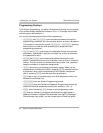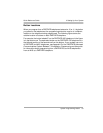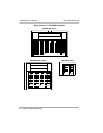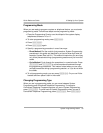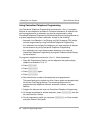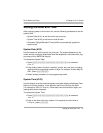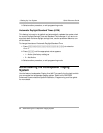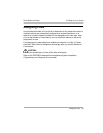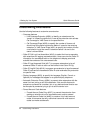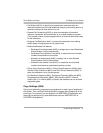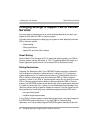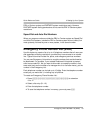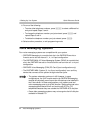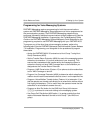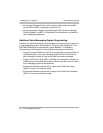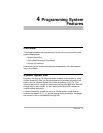
3 Setting Up Your System
40 Customizing Extensions
Quick Reference Guide
Customizing Extensions
Use the following features to customize an extension:
• Coverage features
— Line Coverage Extension (#208), to identify an extension as the
“owner” of a specific outside line. A user at the extension can activate
Call Coverage or VMS Cover for the specified line.
— Call Coverage Rings (#320), to specify the number of times a call
should ring at the owner’s extension before it is sent to the covering
extension, or VMS Cover Rings (#321) to specify the number of times
a call should ring at the owner’s extension before it is sent to the
owner’s voice mailbox.
• Caller ID Call Log Line Association (#318), to select the lines to associate
with extensions for logging unanswered calls. Users can view the Caller ID
information for unanswered calls on the telephone’s display panel and
autodial the numbers of the unanswered calls.
• Caller ID Log Answered Calls (#317), to program extensions to log all
answered Caller ID calls so calls can be viewed in the Caller ID Log.
• Caller ID Log All Calls (#319), to program one extension to log all answered
Caller ID calls and all unanswered Caller ID calls received at any extension
on specific lines.
• Display Language (#303), to specify the language (English, French, or
Spanish) for messages that appear on a system display telephone.
• Automatic Extension Privacy (#304), to prevent other extensions with the
same line from joining a call at the extension. Also use this feature for
extensions connected to a modem, fax, or any device whose function can
be disrupted by someone trying to join a call the device is on.
• Forced Account Code features
— Forced Account Code Entry (#307), to prevent the extension from
making an outside call until a required account code is entered.
— Forced Account Code List (#409), to create a list of valid account
codes; this ensures that only authorized users with valid account
codes can make outside calls.



